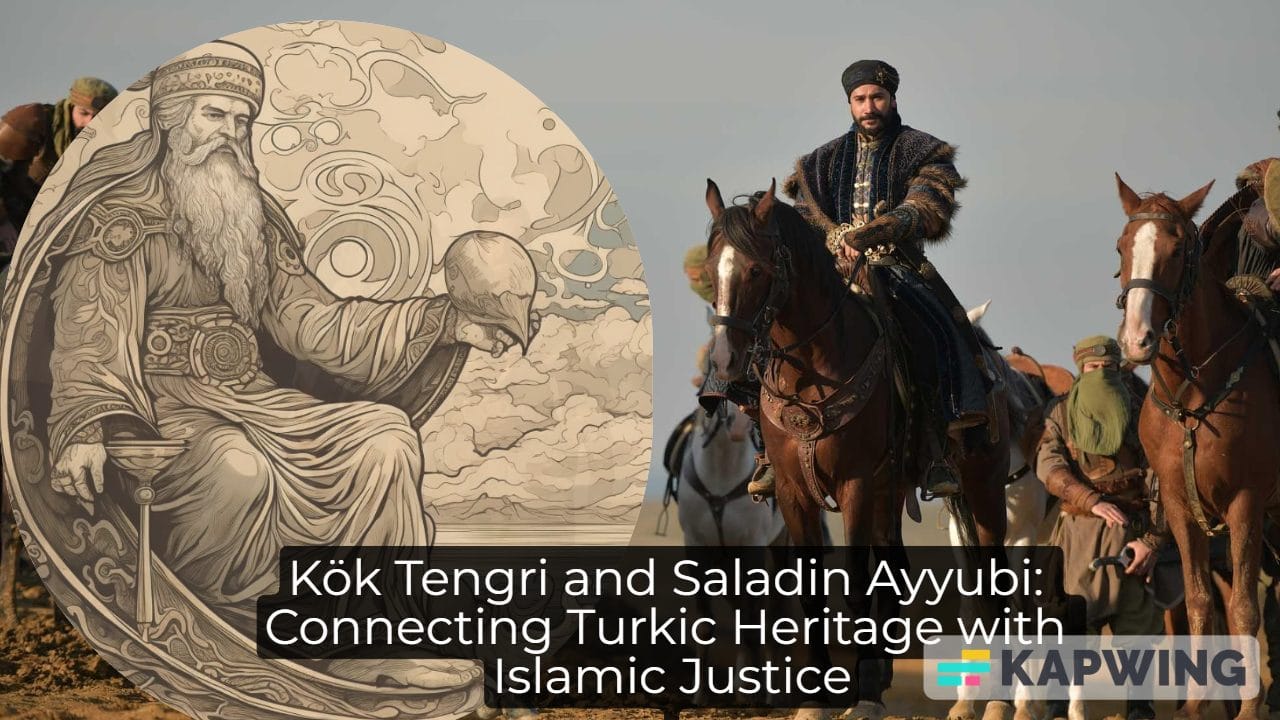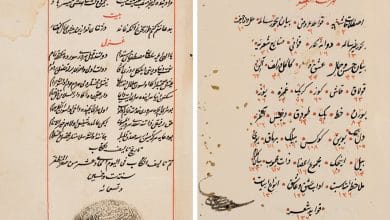Kök Tengri and Saladin Ayyubi: Connecting Turkic Heritage with Islamic Justice
How the beliefs surrounding Kök Tengri, the Sky God of the Turkic world, intertwine with the remarkable legacy of Saladin Ayyubi, the liberator of Jerusalem.

The Curse of Kök Tengri and the Spirit of Saladin Ayyubi: A Connection Across Civilizations
The enigmatic phrase “The Curse of Kök Tengri” stirs the imagination, evoking visions of ancient beliefs, divine wrath, and legendary tribes such as the Boru, whose connection to Tengri shaped their identity. In exploring this mysterious concept, we uncover a fascinating link between the Turkic and Mongol reverence for Kök Tengri and the legacy of Islamic leaders like Saladin Ayyubi, whose values of justice and leadership transcend time.
Kök Tengri’s Influence: A Supreme Deity Beyond Boundaries
In Turkic and Mongol mythology, Kök Tengri, the eternal Sky God, embodies justice, divine order, and balance. For centuries, Tengri’s presence shaped the moral compass of Turkic tribes like the Boru, instilling reverence for nature, loyalty, and a sense of responsibility to uphold harmony.
The so-called “curse” of Kök Tengri is often interpreted metaphorically, representing the consequences of violating sacred laws or failing to honor divine principles. This aligns with the universal understanding of moral accountability seen in many civilizations, including the Islamic world, where leaders like Saladin Ayyubi upheld justice as a divine mandate.
Boru Tribe and the Spirit of the Wolf
The Boru tribe, whose name translates to “wolf,” held a sacred bond with Kök Tengri. The wolf symbolized strength, unity, and resilience, values deeply embedded in their societal structure. Similarly, Saladin Ayyubi, a visionary leader of the Islamic world, demonstrated these traits in his efforts to unify Muslim territories and reclaim Jerusalem during the Crusades.
For Saladin, justice and unity were not just political tools but spiritual imperatives. Much like the Boru tribes’ devotion to Tengri, Saladin’s adherence to Islamic principles of fairness and mercy earned him respect even among his adversaries.
Parallels Between Kök Tengri and Islamic Teachings
While Kök Tengri represents the eternal blue sky and the arbiter of justice in Turkic tradition, Islam teaches that Allah is the supreme Creator, overseeing all with perfect wisdom. Both belief systems emphasize moral responsibility and balance:
- Divine Justice:
Tengri’s curse symbolizes the inevitable consequences of moral failings, echoing Islamic teachings about accountability on the Day of Judgment. - Leadership as a Divine Mandate:
Tengri bestowed authority on leaders to act as stewards of justice, much like Allah entrusts rulers in Islam to govern with fairness and mercy. - Respect for Nature:
Turkic reverence for the natural world aligns with Islamic principles of stewardship, emphasizing humanity’s role in protecting the Earth.
The Legacy of Saladin Ayyubi
Saladin Ayyubi’s life offers a compelling parallel to the values associated with Kök Tengri. Known for his chivalry, Saladin embodied leadership as a divine responsibility. His reclaiming of Jerusalem was not merely a military victory but a restoration of justice and peace, resonating with the spiritual ethos of the Turkic tribes who revered Kök Tengri.
Saladin’s ability to unify diverse peoples under a common cause mirrors the unifying power of Tengri within Turkic societies. Both traditions highlight the transformative potential of shared values and moral leadership in overcoming adversity.
A Shared Heritage of Values
The interplay between the “curse of Kök Tengri” and the enduring legacy of Saladin Ayyubi illustrates a shared human quest for justice, unity, and spiritual fulfillment. Both figures—Tengri as a divine presence and Saladin as a historical leader—represent the moral and ethical ideals that have guided civilizations across time.
In today’s world, revisiting these ancient and historical connections offers not just a window into the past but a reminder of the enduring relevance of values like justice, unity, and respect for the divine. Whether viewed through the lens of Tengricism or Islam, the lessons remain timeless: to honor the sacred, uphold justice, and lead with integrity.
Click here to watch Saladin Ayyubi Series now: OsmanOnline.Live
Learn more about the fascinating history of the Islamic world and the Ottoman Empire at OsmanOnline.me.




